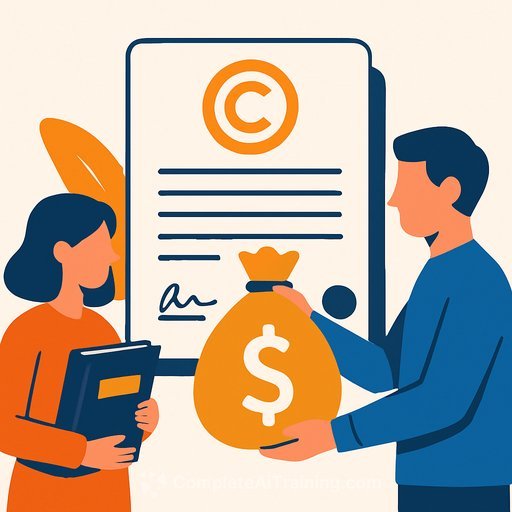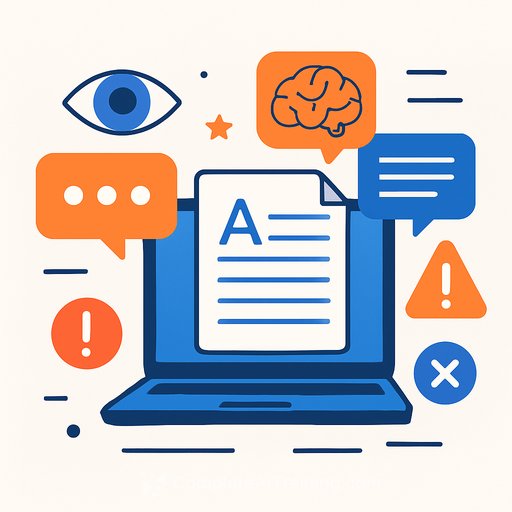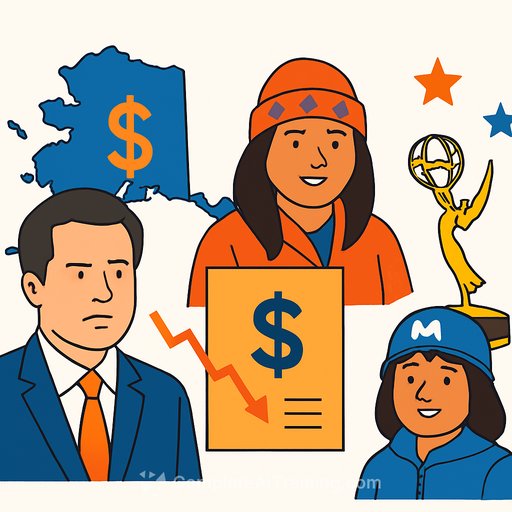Hundreds of Australian writers may be eligible for AI copyright payouts - here's what to know and do
Hundreds of Australian authors appear in a US$1.5 billion (approx. A$2.27 billion) AI copyright settlement tied to books used without permission to train AI systems. The settlement, in the case Bartz v. Anthropic, has court approval, with a fairness hearing ahead before payments begin.
If your work is in the settlement database, you could be eligible for a per-title payment. Reported estimates are about US$3,000 per work before fees, which aligns to roughly A$4,500 per title - to be shared with publishers.
Who's on the list
Many Australian authors appear in the database. Examples include:
- Trent Dalton (Boy Swallows Universe; All Our Shimmering Skies)
- Helen Garner (Postcards from Surfers; The Children's Bach; The First Stone; The Spare Room)
- Julia Baird (Phosphorescence; Victoria)
- Charlotte Wood
- Thomas Keneally
- Andy Griffiths and Terry Denton (The 26-Storey Treehouse)
- Christos Tsiolkas (The Slap)
- Kate Grenville (Lilian's Story)
- Andrew McGahan
- Kylie Ladd (After The Fall)
- Kerry Greenwood
- Kate Morton (The Distant Hours)
- Roland Perry (Program for a Puppet)
- Rodney Hall (Just Relations)
- Blanche d'Alpuget (Winter in Jerusalem)
- Alex Miller (The Ancestor Game)
- Stephanie Dowrick (Forgiveness and Other Acts of Love)
- Anna Funder (All That I Am)
- Pip Drysdale (The Sunday Girl)
- Chloe Hooper (The Arsonist)
- Hannah Richell (The River Home)
- Elliot Perlman (The Street Sweeper)
- Kirsten Tranter (A Common Loss)
- Sara Foster (The Hidden Hours)
- Eddie Jaku (The Happiest Man on Earth)
- Thea Astley (Coda)
- Peter Corris (Beware of the Dog)
- Morris West (Eminence)
This list isn't exhaustive. If you've published books, assume it's worth checking.
Key points writers should note
- Fund size: US$1.5 billion, with approximate per-work payments of US$3,000 before fees.
- Sharing: Payments are shared with publishers per title.
- Deadline: Claims must be submitted by March 23, 2026.
- Data handling: Anthropic must destroy books downloaded from LibGen or PiLiMi datasets and any copies.
- Process: A US court has approved the settlement; a fairness hearing will address any remaining issues before payouts.
How to find out if you're eligible
- Search the official settlement database for your titles and name.
- Confirm which editions/ISBNs are listed and whether you or your publisher control the relevant rights.
- Coordinate with your publisher and agent on revenue sharing and who will file the claim.
How to prepare your claim
- Collect documentation: ISBNs, publication dates, contracts, assignment/rights agreements, and identification.
- Clarify splits: Author, publisher, and agent commission arrangements in writing.
- Tax forms: If you're outside the US, prepare the appropriate W-8BEN (individual) or W-8BEN-E (entity) for withholding.
- Submit: File your claim via the official portal before March 23, 2026, and keep confirmation records.
- Track updates: Note the fairness hearing date and any changes to distribution timelines.
What this means for your writing business
This is a clear signal: training AI on copyrighted books without permission has financial consequences. As an author, protect your catalog, keep contracts organized, and stay proactive about rights and permissions.
Use this moment to tighten your rights management, improve metadata for your titles, and align with your publisher on future AI license terms. Treat it like you would foreign rights: cataloged, traceable, and negotiated.
Practical next steps
- Audit your bibliography and editions; list ISBNs in a single document.
- Centralize contracts and rights transfers for quick verification.
- Nominate a point person (you, agent, or publisher) to handle claims and follow-ups.
- Calendar the claim deadline and fairness hearing updates.
If you're updating your workflow to use AI ethically and on your terms, explore practical training built for job roles, including writers. See curated AI courses by job.
This article is for information only and is not legal advice. If in doubt about eligibility, rights, or tax treatment, consult your publisher or an attorney.
Your membership also unlocks:






